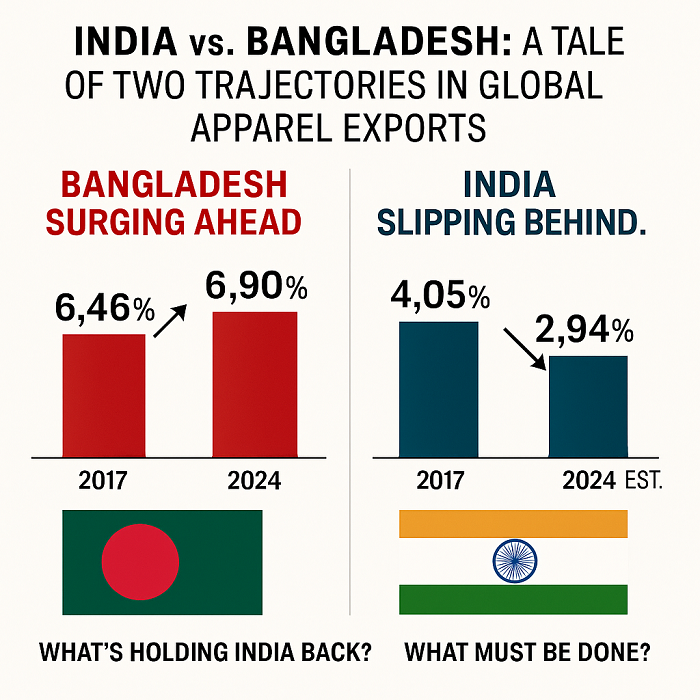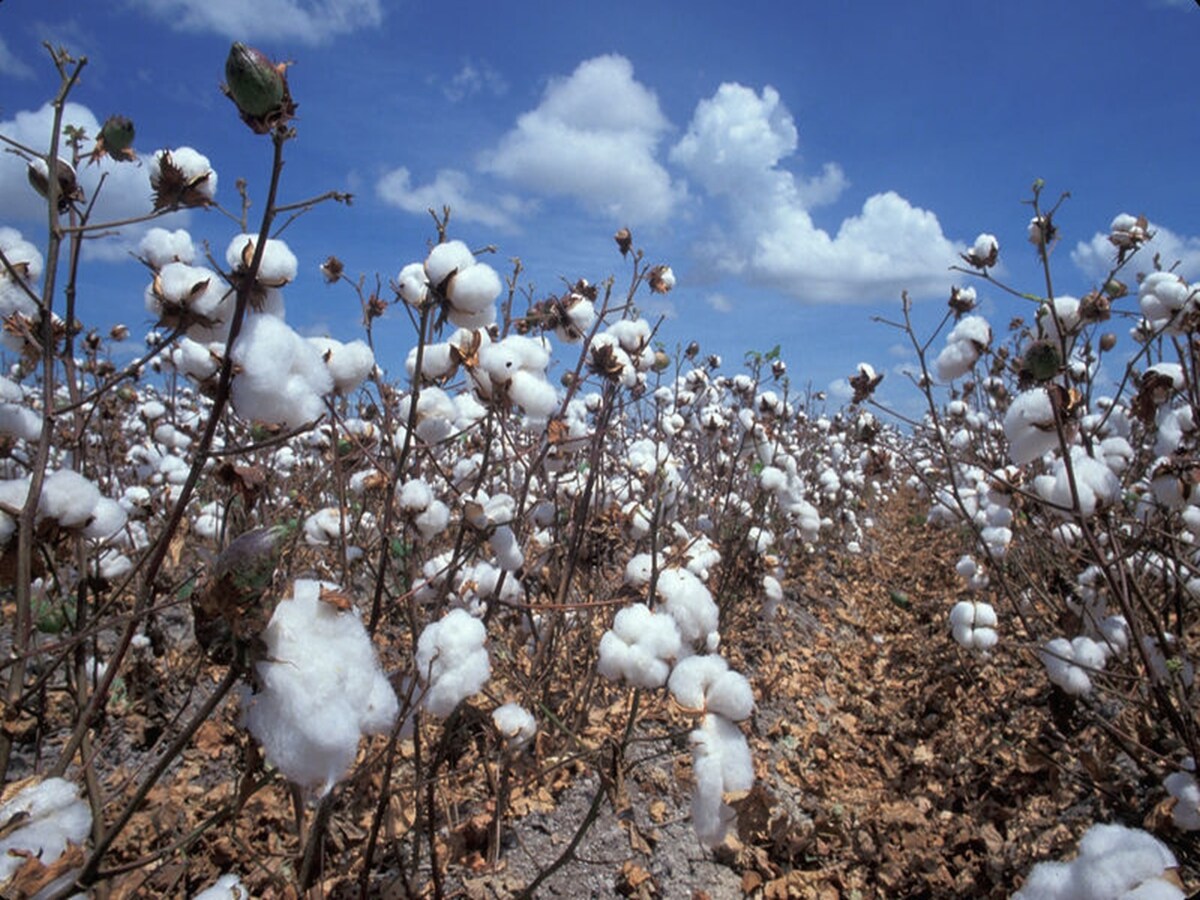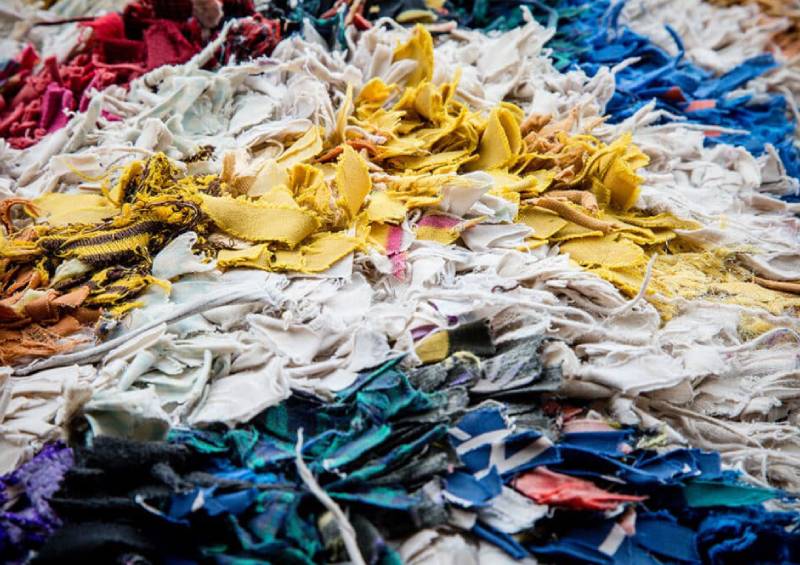FW
London Fashion Week has become the first major fashion event to ban collections created using exotic animal skins from 2025. As announced by David Leigh-Pemberton, Deputy Director-Policy and Engagement, British Fashion Council, henceforth, the event will feature designers producing collections made without animal skin-free materials.
This ban is a part of the broader initiative of the Institute of Positive Fashion, which focuses on enhancing sustainability, social responsibility, and environmental standards within the fashion industry. It aligns with London’s growing reputation as a hub for forward-thinking, ethical fashion. The move also aligns London with smaller yet influential fashion events like Melbourne and Copenhagen Fashion Weeks, which have similarly adopted bans.
The decision to ban exotic skins from their collections is a result of mounting pressure from animal rights groups, long advocating to end the use of animal-derived materials in its collections. Organisations like PETA have disrupting fashion events, urging designers to stop using animal skins, leather, and fur.
Praising BFC for its progressive stance, Yvonne Taylor, Vice President - Corporate Projects, PETA, notes, tens of thousands of supporters contacted the BFC to urge the ban. She also applauded the British designers who helped bring about this policy change, calling it a victory for animal rights and sustainable fashion.
From $197 billion in 2023, the Indian textile industry is poised to grow to $350 billion by 2030, expanding at a CAGR of 10.1 per cent. Driven by a focus on sustainability and technological advancements, the industry is undergoing a significant transformation. As per a report by Texprocil, the sector is embracing sustainable materials, fibers, and eco-friendly production methods to reduce its environmental footprint while enhancing its global competitiveness.
This rapid growth in textile production, coupled with the increased adoption of synthetic fibres, has raised environmental concerns. Over the last 15 years, garment production in India has doubled, while the lifespan of garments has decreased by 36 per cent with only 1 per cent of fibers being recycled into clothing. The industry consumes significant resources, generating substantial wastewater and pollution. To address these challenges, manufacturers are adopting innovative practices like recycling, upcycling, water conservation, and renewable energy use. Companies like Welspun are shifting to solar and wind energy, while BRFL Textiles has developed waterless dyeing techniques to minimise environmental impact.
The government too has introduced several initiatives to foster sustainable practices in the industry. It has launched programs like the Sustainable Resolution (SU.RE) and PM MITRA to promote eco-friendly manufacturing and the circular economy, while the Production-Linked Incentive (PLI) scheme incentivises domestic production. The amended Technology Upgradation Fund Scheme (A-TUFS) further supports modernisation through financial incentives. The government is also setting up seven textile parks under the PM MITRA scheme to enhance industry efficiency and sustainability.
Despite these advancements, the industry continues to face certain challenges. The decentralised supply chain, limited technical expertise, and stiff competition hinder the widespread adoption of sustainable practices. However, collaboration among manufacturers and resource-sharing initiatives are fostering innovation and cost-effective green solutions.
Singapore-based Mega Textile Singapore plans to develop a textile facility to manufacture knitwear, fabrics, colored yarns and semi-finished items in Vietnam.
To span 51 hectare in the The Loc Industrial Park, the facility will be developed with an investment of $590 million. It will produce 67,200 tons of fabric, 10,300 tons of knitwear, 7,200 tons of colored yarns, 100 million belts, 130 million clothing items and 2.2 million cut semi-finished items annually.
To be developed by Mega Textile Vietnam-the subsidiary of Mega Textile Singapore, the project will employ over 15,000 local people and help Nghe An attract foreign direct investment (FDI) worth $1.7 billion this year, among the top 10 figures in Vietnam.
Established in 2022 by China-headquartered Best Pacific International Holdings, Mega Textile Singapore, is a supplier to many global brands, such as Adidas, Uniqlo, H&M, and Victoria's Secret. Prior to Nghe An, the firm had established Best Pacific Vietnam Co in 2015 in Hai Duong, the northern province of Vietnam.
Vietnam’s textile and apparel (T&A) exports rose by 8.9 per cent to $30.57 billion during Jan-Oct’24. The country’s export revenue during the 10-month period grew by 14.9 per cent Y-o-Y to $335.59 billion.
Despite a 7.64 per cent Q-o-Q rise, Bangladesh's RMG exports declined by 2.8 per cent Y-o-Y to $9.51 billion in Q1, FY25. Demonstrating resilience, the sector maintained steady growth despite domestic political unrest, as per stakeholders.
Bangladesh had exported RMG worth $9.79 billion in the corresponding quarter of the previous fiscal, according to the latest report of Bangladesh Bank.
By Q1, FY25-end, Bangladesh’s export earnings from RMG sector increased to $9.51 billion from $8.83 billion in the preceding quarter, as per data by the Bangladesh Bank.
Accounting to71.2 per cent, the United States, Germany, and other key European markets contributed to $6,77 billion to Bangladesh’s total exports during the quarter.
Moreover, highlighting the sector's significant value addition despite global economic challenges, net RMG exports during the quarter amounted to $5.61 billion or 59.06 per cent of the gross figure.
Though since its emergence the Bangladesh RMG industry accounted for the lion's share of the country's export earnings, it continues to face challenges like concerns related to labour rights, workplace safety, and environmental sustainability.
Other drawbacks of the industry limited product and market diversity, lack of sufficient backward linkage industry, concentrated market, high lead time, lack of efficiency in producing high-value products, global geopolitical conflicts, energy price hikes, etc.
Nevertheless, the sector made a significant contribution of 7.87 per cent to Bangladesh's GDP in FY24. RMG export earnings in FY24 stood at $36.13 billion, indicating a low growth of 5.36 per cent compared to the previous fiscal year.
Export earnings from the leather and leather products industry accounted for 2.48 per cent, export earnings from jute products totaled 1.3 per cent while earnings from exports of other products accounted for 10.36 per cent of the total products.
In the apparel segment, export earnings form sub-sectors like woven sector accounted for 35.72 per cent whereas earnings from knitwear exports contributed 45.87 per cent.
Shams Mahmud, Managing Director, Shasha Denims and Former President, Dhaka Chamber of Commerce and Industry, said despite the recent unrest, the sector now remains stable and its future outlook remains bright.
Africa Fashion International (AFI) has released the list of designers participating in the upcoming Cape Town Fashion Week. Scheduled from November 29-30, 2024 at the Hollywoodbets Kenilworth Racecourse, the event will feature top designers from South Africa and the African continent.
The designer line-up for the event includes pan-African names such as the Senegal-based Alia Baré, Helene Daba of the brand Sisters of Afrika from Senegal, Laurence Chauvin-Buthaud of the brand LaurenceAirline from Cote de’Ivoire, Papay Kaluv from the DR-Condo based brand Urban Zulu and Senegal-based designer Safietou Seck from the brand Sarayaa.
The event will also feature designers from South Africa such as Londeka Buthelezi-Ndaba from the brand Malondie, Bathini Kowane from Bathini Designs, Sello Medupe of the brand Scalo, Keletso Moraba frm brand K Moraba & Collective, Sandi Mazibuko from brand FabroSanz and Julia Buchanan from the eponymous brand Julia.
Additionally, two renowned South African designers will make a comeback to the AFI runway. These will include Craig Jacobs, who will present his finale collection reflecting his artistic evolution after a gap of 14 years.
Serving as the event’s creative director, globally acclaimed designer Gavin Rajah will also present his latest creations, promising a masterclass in artistry.
AFI’s in-house brand, AFI Privé, will launch its debut Spring/Summer 2024/25 signature collection. The grand finale of the fashion week will celebrate emerging talent and the future of African fashion by presenting collections by the finalists of AFI Fastrack Price 2023.
A world leader in legwear and timeless fashion, Wolford has launched its innovative The Wow Leggings Collection. Designed to revolutionise the everyday experience of leggings wearers, the collection integrates Fulgar’s Emana technology into the The Wellness series.
Created to enhance the aesthetics of the skin, this collection is shaped by Wolford’s refined, comfortable design. The leggings in this collection are made using the smart Emana yarn, patented by the Rhodia-Solvay Group and produced by Europe-based Fulgar. This Emana technology uses the bioactive minerals contained in the fiber to absorb heat from the human body and restore it naturally to the skin in form of infra-red rays, stimulating micro-circulation of the blood at a cutaneous level, helping to give the skin improved suppleness and tone.
Constructed using the circular knit, these leggings offer a perfect fit to the wearers. Their waistband supports consumers during all activities. The leggings combine the Walford aesthetic with the cosmetic benefits of Emana technology, catering to the needs of those seeking maximum well-being without compromising on style.
An ideal solution for those who wish to combine fashion and functionality, these leggings offer wearers the unique cosmetic benefits of the Emana technology.
In collaboration with Deutsche Gesellschaft für Internationale Zusammenarbeit (GIZ), Aditya Birla Fashion and Retail (ABFRL) launched the first of its kind - circularity guidelines for Indian textile and apparel (T&A) industry at the Sankalp Bharat Summit 2024, Varanasi.
Titled, ‘Stitching the Circle: A Roadmap for Circular Textiles & Apparel in India,’ these guidelines are designed to assist textile businesses in transitioning from a linear to a circular economy model. They encapsulate the initiatives undertaken during ABFRL and GIZ's collaborative journey to advance sustainability, reduce waste, and foster resource efficiency in the textile value chain.
Over the past three years, the partnership between ABFRL and GIZ has spearheaded a series of impactful initiatives aimed at transforming India's textile sector. These initiatives included a comprehensive baseline survey to assess the current state of circularity, the Circularity Innovation Challenge 2023 to foster sustainable solutions, and the nationwide training program, ‘Decoding Circularity Together’ to empower stake holders across the textile value chain.
ABFRL and GIZ also conducted pilot projects to integrate circular solutions into textile supply chain, documented through a compelling narrative to raise awareness and inspire action.
Ashish Dikshit, Managing Director, Aditya Birla Fashion and Retail, states, a defining moment for the company, a launch of these circularity guidelines reflects its unyielding commitment to collaborate with the fashion industry towards sustainability and to champion the development of a circular textile ecosystem.
Building on this, Dr Naresh Tyagi, Chief Sustainability Officer, Aditya Birla Fashion and Retail, adds, ABFRL and GIZ have collaborated to create circular guidelines and other initiatives for the industry players to enable them to work in a holistic manner, benefiting both the environment and society.
The newly launched guidelines present actionable strategies for transitioning from a linear to a circular economy model. It includes the 6R Approach (Redesign, Reduce, Reuse, Remanufacture, Recycle, Regenerate), providing a framework forthe textile industry to reduce waste and enhance resource efficiency, circularity. The manifesto also sets Key Performance Indicators (KPIs) to measure circularity in organisation and encouraging alignment with global sustainability certifications.
Through case studies and best practices, the guidelines serve as a practical guide for Indian businesses aiming to integrate circularity into every stage of production—fromsourcing sustainable materials to engaging consumers in circular practices. The document aims to inspire the entire value chain, from manufacturers to policy makers, to collectively build a sustainable textile ecosystem in India.
To be held from November 20-21, 2024 in Cologne, Germany, the Advanced Recycling Conference (ARC) 2024 will expand its scope beyond conventional plastic packaging to address pressing issues like e-waste valorisation, PVC recycling, textile recycling, and advanced recycling techniques for engineering thermoplastics. The conference will also highlight innovative funding strategies essential for these advancements.
The conference will gather industry leaders, researchers, and policymakers to explore groundbreaking technologies and strategies that can reshape sustainability.
With nearly 300 participants from 26 countries attending the 2023 event – a 30 per cent increase of attendees compared to the year before – ARC has established itself as the largest conference in Europe for advanced recycling. ARC 2024 promises invaluable insights into emerging trends and collaboration opportunities in both physical and chemical recycling. The conference will feature various dynamic sessions led by industry experts that explore all aspects of the diverse landscape of advanced recycling.
This solvent-based technology dissolves targeted polymers from mixed plastic wastes while the chemical structure of the polymer remains intact. Other undissolved plastic components (e.g. additives, pigments, fillers, non-targeted polymers) can be cleaned from the dissolved target polymer. The session covers polymer extraction or purification from PS and engineering plastics (e.g. ABS) through physical recycling using dissolution technologies.
A global leader in sustainable chemicals, Indorama Ventures Public Company highlighted its groundbreaking advancements in recycling and sustainability at the 29th United Nations Climate Change Conference (COP29), held from November 11–22, 2024 in Baku, Azerbaijan.
Participating through its booth and at the Thailand Pavilion in collaboration with the Thai government, Indorama Ventures celebrated recycling over 130 billion post-consumer PET bottles between February 2011 and October 2024. The company unveiled innovative solutions, including the SIPA Sparkling Wine Bottle, the world’s first sustainable monolayer PET bottle for sparkling wine, developed with SIPA; the first commercial-scale bio-PET bottle, produced using ISCC+ certified bio-paraxylene in partnership with Suntory, ENEOS, and others; and Oxismooth®, a renewable emollient range for personal care products.
Indorama Ventures actively engaged in thought leadership panels, with Anthony M Watanabe, Chief Sustainability Officer, presenting ‘The Six Secrets of Circularity.’ He emphasised the potential of a circular economy to cut global emissions by 40 per cent by 2050 and called for international cooperation on the global plastic treaty to drive systemic environmental change.
The company’s sustainability advocates, including Ermis Panagiotopoulos, Harsha Reddy, and Naweensuda Krabuanrat, contributed to discussions on low-carbon futures, reinforcing Indorama Ventures’ role as a sustainability leader.
COP29 brought together nations, businesses, and advocates to advance sustainability and low-carbon goals. Indorama Ventures’ presence underscored its commitment to driving a circular economy, reducing emissions, and inspiring collective action to combat climate change. Through its innovations and partnerships, the company continues to lead the charge in shaping a sustainable future for the chemical industry and beyond.
To highlight climate-positive innovations in the fashion and textile industry, the British Council is hosting an exhibition titled, ‘Making Matters India and the UK.’ Being held from October 15, 2024, to December 9, 2024, the exhibition showcases sustainable practices and forward-think approaches spanning sequins made of algae and cellulose to fabrics recycled from textile waste and garments repaired using traditional mending techniques.
Highlighting a blend of research, practical solutions, and knowledge-sharing opportunities for the industry, the exhibition redefines sustainability by fostering collaboration among industry experts, academics, and stakeholders while creating a platform to exchange insights and ideas.
As a part of its arts program, the British Council has facilitated collaborations between India and the UK to demonstrate how indigenous crafts can integrate modern technology to drive sustainability. Alison Barrett, MBE, Director India, British Council, explains, the Council has strengthened its global partnership with collectives working towards sustainability in India to understand the craft landscape and the sector’s needs.
One of the featured projects includes Circular Khadi, a collaborative project launched with Conserve India. The project tackles the issue of textile waste by recycling handloom cotton scraps and incorporating them into the khadi production chain. It explores the role of small-scale machinery in promoting environmental conservation and uplifting rural communities.
Other highlights of the exhibition include the Bequin initiative which offers a sustainable alternative to conventional sequins by crafting them from algae and cellulose. On other hand,
The Darn Initiative connects consumers with skilled menders across India, helping preserve traditional repair techniques and extend the life of garments. The initiative also features collaborations like Where Does It Come From? and Khadi London, which focus on regenerative fabrics and ethical production, and Khamir, a platform promoting craft heritage and ecological practices in Kutch, Gujarat.
With support from partners like Fashion Revolution, the United Nations, and the Fashion, Textile and Technology Institute (University of the Arts London), the exhibition aims to create ripple effects across the industry. It serves as a testament to the potential of combining innovation with heritage, paving the way for a more sustainable future in textiles and fashion.












